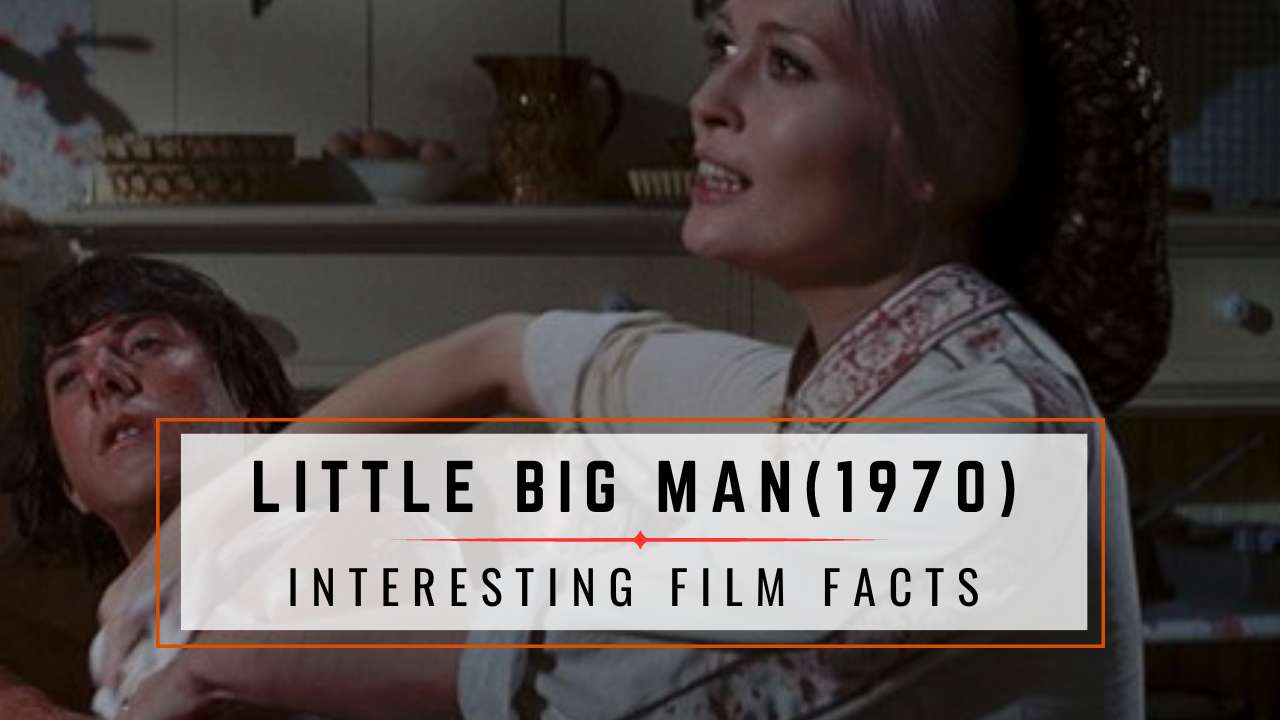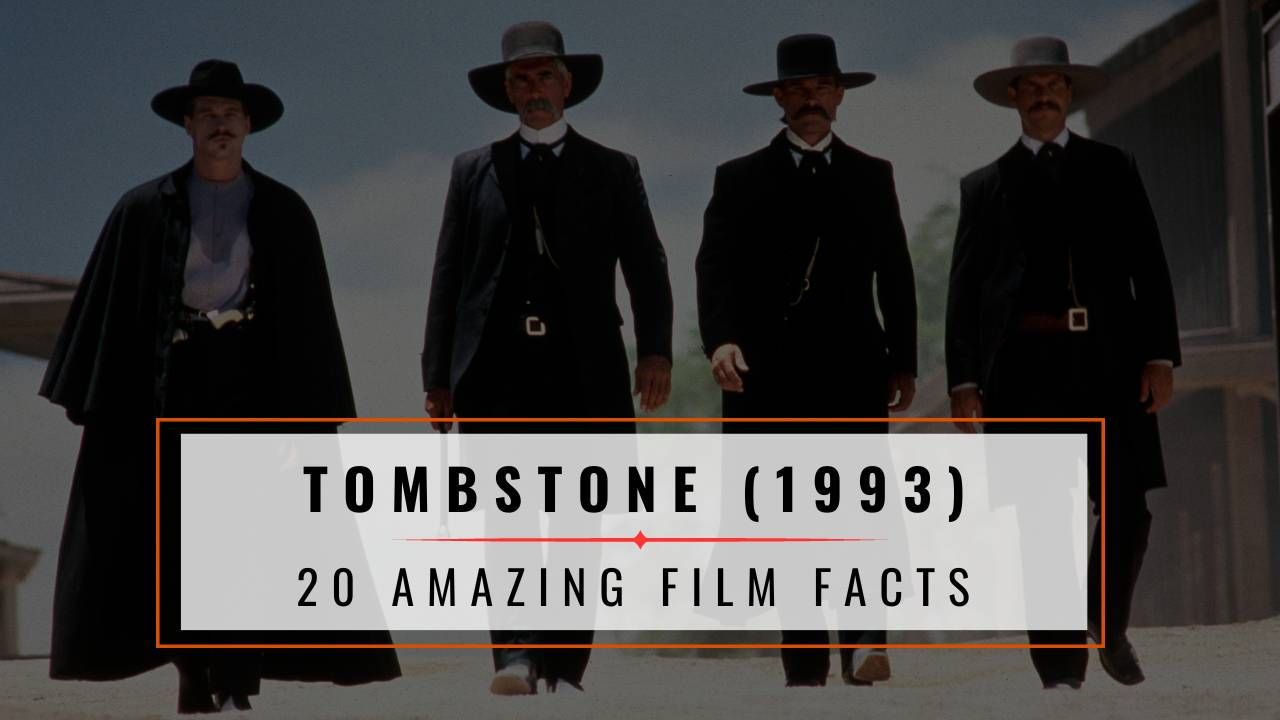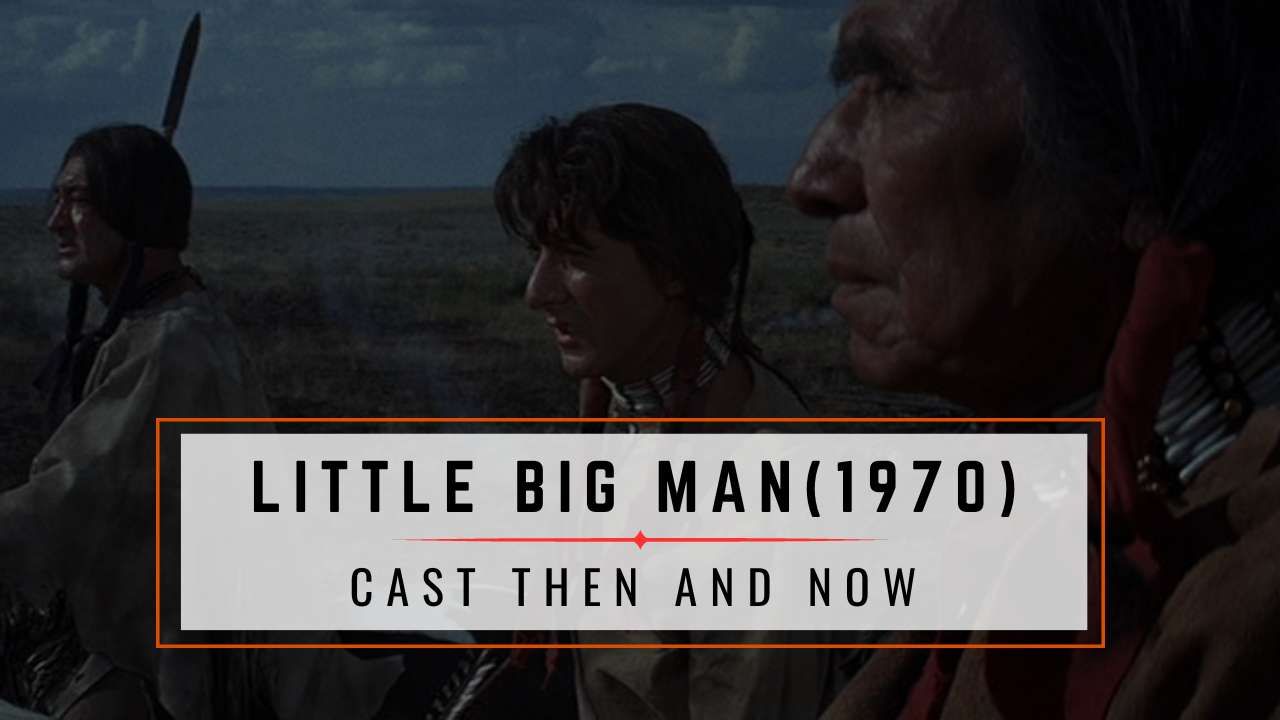Amazing Film Facts: Little Big Man (1970)

The 1970 western film Little Big Man is a revisionist classic starring Dustin Hoffman as Jack Crabb, a 121-year-old frontiersman looking back on his life in the American West. Directed by Arthur Penn, the movie provided a new perspective on Native American struggles against encroaching white settlers.
WHERE TO STREAM
Behind the scenes, Little Big Man was filled with fascinating trivia and intriguing film facts. Let's take a nostalgic look back at some amazing details about the making of this iconic western.
Long Road to Production

The film adaptation of Little Big Man was first announced in 1965 with director Arthur Penn and writer Calder Willingham attached. Their plans fell through, but after the success of Penn's 1967 hit Bonnie and Clyde, the director was able to revisit the project. The movie gained traction once rising star Dustin Hoffman agreed to play the lead role of Jack Crabb. Penn's vision for a new kind of western finally came to fruition in 1970.
Casting Old Lodge Skins Was a Challenge

The critical role of Jack Crabb's Cheyenne grandfather, Old Lodge Skins, was initially offered to acting legends Marlon Brando and Sir Laurence Olivier, both of whom turned it down. Veteran western actor Richard Boone was then set for the part but dropped out at the last moment. Finally, Canadian First Nations actor Chief Dan George was cast and earned a Best Supporting Actor Oscar nomination.
"Come out and fight! It is a good day to die! Thank You for making me a Human Being! Thank You for helpin' me to become a warrior! Thank You for my victories, and for my defeats! Thank You for my vision, and the blindness in which I saw further! You make all things and direct them in their ways, O Grandfather. And now You have decided the Human Beings will soon walk a road that leads nowhere. I am gonna die now, unless death wants to fight. And I ask You for the last time to grant me my old power to make things happen" - Old Lodge Skins
Dustin Hoffman's Extreme Preparation

To achieve the authentic raspy voice of a 121-year-old Jack Crabb, Dustin Hoffman would scream at the top of his lungs in his dressing room for an hour before filming. His dedication to the role was so intense that he holds the Guinness World Record for "Greatest Age Span Portrayed by a Movie Actor" for convincingly playing Jack Crabb from age 10 to 121.
Faye Dunaway Was Younger than Dustin Hoffman

Despite playing the seductive Mrs. Pendrake, who adopts a young Jack Crabb, Faye Dunaway was actually four years younger than Hoffman in real life. He was born in 1937, while she was born in 1941.
RELATED:

Revolutionary Old Age Makeup

Makeup artist Dick Smith created innovative latex appliances for Dustin Hoffman's old Jack Crabb makeup that allowed Hoffman's eyes to blink inside the mask. Unfortunately, close-ups that showed off this groundbreaking technique were cut from the final film.
Allegory for Vietnam War Era

With its cynical portrayal of the U.S. cavalry, Little Big Man was seen by many critics as a commentary on America's controversial involvement in Vietnam. Director Arthur Penn deliberately cast Chinese-American actress Aimee Eccles as a Cheyenne wife to allude to Vietnam.
Chief Dan George's Activism

Chief Dan George used his fame from the film to advocate for indigenous rights and shine a spotlight on the mistreatment of Native Americans throughout history. He became the first Native American nominated for an Academy Award for acting.
Hoffman's Smoking Struggles

Method actor Dustin Hoffman was so stressed playing the demanding role of Jack Crabb that after quitting smoking for eight months prior to filming, he resumed the habit during production.
RELATED:

Acclaimed Cast and Crew
The impressive Little Big Man cast and crew racked up Oscars and nominations. It featured three Oscar-winning actors - Hoffman, Dunaway, Martin Balsam - and two Oscar nominees - Chief Dan George and William Hickey.
No Intermission
At two and a half hours long, Little Big Man was one of the few films of its era to forego having an intermission. Most movies of that length would include a halfway point break. But Arthur Penn chose to have the epic story play out continuously, relying on the strength of the narrative and performances to sustain audience engagement across an unusually long runtime for the time.
The 7th Cavalry's Song

The rousing tune that plays when Custer's 7th Cavalry charges into battle is an Irish jig called "Garry Owen." This song was the actual official tune of the real-life 7th Cavalry regiment. However, the version used in the film is a medley of "Garry Owen" blended with another jig called "St. Patrick's Day." The combined music provides an authentic militaristic flair.
Pop Culture Impact
Old Lodge Skins' poignant line "Today is a good day to die" had a surprising pop culture influence. The quote was adopted by the Star Trek universe as a common Klingon saying, often uttered by Worf and other Klingon characters. This impact is a testament to how Chief Dan George's performance resonated with audiences, leading to his words taking on a life beyond the film.
Language and Translation
As Old Lodge Skins notes in the film, many Native American tribes referred to themselves in their own languages as simply "the human beings" or "the people." This created inherent challenges in interpreting and translating key sayings and phrases into English. Little Big Man strived to portray Native American characters and culture as authentically as possible, while acknowledging the complexities of language and meaning.
Lost in Adaptation

Intriguingly, the movie posters in the UK contained a famous quote from Thomas Berger's original Little Big Man novel that is never actually said in the film. The quote by the historian character (played by William Hickey) states that Jack Crabb is either the "most undeservedly-unsung hero in American history or a liar of insane proportions." This line encapsulates the essence of Crabb's unreliable narration and mythic storytelling, even though it didn't make it into the script.
With its unique comedic tone, sweeping storytelling, and outstanding performances, Little Big Man broke the mold for revisionist westerns. These fascinating film facts provide a glimpse into the passion and talent that brought Jack Crabb's tale to vivid life. Revisiting these behind-the-scenes details offers a new appreciation for a subversive classic.
More Recommendations from The Rewind Zone
Please consider Subscribing to this site (It's FREE!) to get your weekly fix of Movie Nostalgia
Please show your support to our enterprise by checking out our Youtube channel, every view keeps us moving...
Happy viewing!





Comments ()